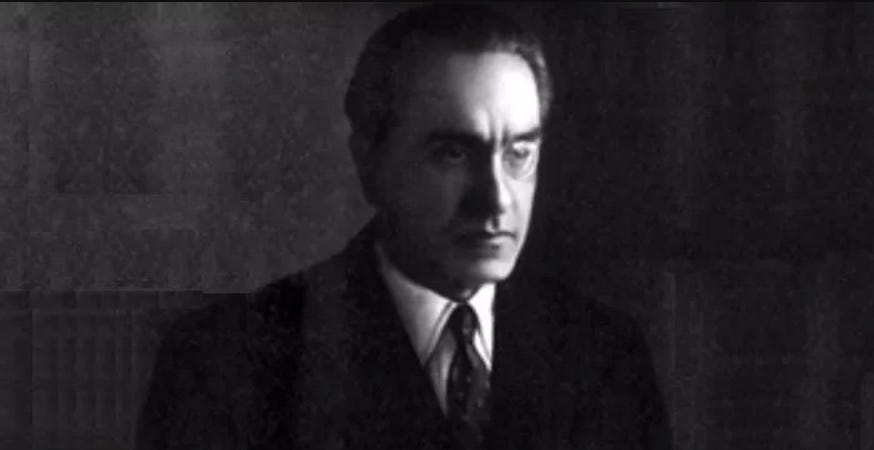Another essay for paid subscribers on important cultural and philosophical figures.
“The desert encroaches. Woe to him whose desert is within!”
Friedrich Nietzsche
Julius Evola was a somewhat notorious Italian philosopher of the 20th century.
But, fittingly for the subject of this essay, I will not be looking at Evola the individual. (Evola detested the modern ideal of being an ‘individual’ within the ‘mass’.)
Instead, I want to examine his final work, the book Ride the Tiger, which he termed ‘a survival manual for the aristocrats of the soul.’
A brief introduction:
Evola believed that history occurred in cycles. The solar age gives way to the lunar; gold to silver; bronze to iron. Transcendence turns to ritual which turns to war which turns to decay. Borrowing from eastern traditions, he described the modern age as the ‘kali yuga’, the age in which the demon Kali awakes, and dissolution and social chaos begin.
But even though we live in this materialist, decadent age, there will always be, as in any epoch, human beings who want to transcend, who want to keep their souls intact, whose inner life is in conflict with the barrenness of the encroaching modern desert.
Evola wrote Ride the Tiger for such people. The tiger represents the chaos of the modern day. It cannot be defeated, just as an unarmed human being cannot defeat the tiger. Trying to do so directly would be suicidal. No man is bigger than history. So what should one do?
Proverbially, the best strategy may be not to fight, but to ride the tiger, for, “if one succeeds in riding a tiger, not only does one avoid having it leap on one, but if one can keep one’s seat and not fall off, one may eventually get the better of it…
“When a cycle of civilization is reaching its end, it is difficult to achieve anything by resisting it and by directly opposing the forces in motion. The current is too strong; one would be overwhelmed. The essential thing is not to let oneself be impressed by the omnipotence and apparent triumph of the forces of the epoch. These forces, devoid of connection with any higher principle, are in fact on a short chain. One should not become fixated on the present and on things at hand, but keep in view the conditions that may come about in the future.”
Evola was what is called a ‘perennialist’. He did not follow any one religion, but believed in a kind of eternal ‘Tradition’, an elitist, sacred order, beyond the human and hidden from most people. (More on his religious beliefs below.)
Europe had experienced a withdrawal of this Tradition in the aftermath of the French Revolution of 1789. (Evola famously said, “My principles are only those that, before the French Revolution, every well-born person considered sane and normal.”)
Monarchy, hierarchy, and a supra-nationalist, transcendent vision of politics were all discarded in the shadow of the guillotine and the Great Terror, toward a vision of secular nationalism under the leadership of figures he detested, such as Danton and Marat below.
Quoting Walther Rathenau, he described the new order that had been inaugurated in 1789 as a “vertical invasion by barbarians from below.”
This meant he also had a great deal of scepticism toward ‘conservative’ movements of his own era, who only wanted to restore the post-revolutionary, bourgeois body-politic, and did not perceive that the threat of communism had only been made possible by this older, ‘republican’ revolution:
“The first revolution simply prepared the way for the second, whereupon the latter, having let the bourgeoisie perform that function, aimed solely at eradicating them.”
Instead of conserving something which had already rotted, Evola believed those who retained an inner life, a spiritual conscience, should feel no real loyalty to nation-states that were not really states at all, but mere administrative zones governed by “petty politicians… at the service of financial, industrial, or corporate interests” who at best can only offer a soulless, utilitarian technocracy, a civilization described by Nietzsche as one of “great cities, newspapers, fever, uselessness.”
For Evola, writing after World War II, the ‘West’ did indeed offer a greater degree of external freedom than the Communist ‘East’, and could be supported strategically for that reason, but one should not pretend that it is any less nihilistic or anti-traditional, built as it is upon an older, anterior barbarism.
And even if political forces other than bourgeois or socialist arose, because of the rootlessness of the masses, and their susceptibility to chthonic, mass myth-making, those forces (embodied previously by the likes of Hitler and Mussolini) could only ever exist and hold any appeal on a sub-intellectual, irrational, and fanatical plane.
But Evola believed in a higher plane, a zone which modern politics or social activism cannot access. Too far have we fallen. What we can do, is reach for that higher plane within ourselves, and wait.
In our modern crisis, an entirely different category of resistance is necessary. One has to learn to ride the tiger…
Keep reading with a 7-day free trial
Subscribe to Chris Waldburger to keep reading this post and get 7 days of free access to the full post archives.





